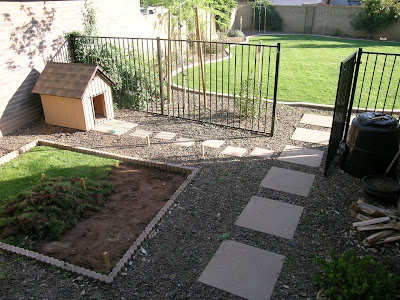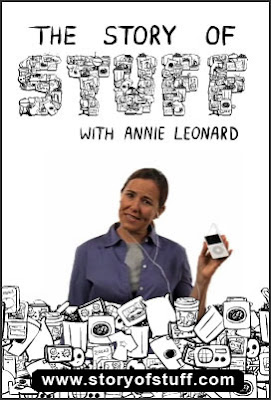When I was about half way through high school, I was thinking that I might want to go to college to study architecture. There's a lot about it that still really appeals to me today... but long story, short I didn't study architecture. I studied music and then global business... go figure. No regrets, though.
So, fast-forward (or rewind, depending on where you are in this boring story so far) to the end of 2005, and I'm sitting (as a real estate developer) at this fancy-schmancy economic forecast luncheon in Phoenix where there were three main speakers for the morning.
 The first two were your typical, run-of-the-mill high-octane economists from some big investment banks, which is the type of person that you expect to hear pontificate at these events. But the third guy was different... his name is Wellington Reiter. I felt sort of bad for him because when it came to his turn, droves of round men in business suits were already filing out of the ballroom, indirectly writing-off anything he was about to say as irrelevant to their future. But as soon as he launched into his presentation, I was locked-in (for the first time all morning). Reiter's talk simply offered a vision for what the future of urban planning & design COULD look like (specifically in Phoenix) both in commercial and residential applications. Concept sketches of high-density yet comfortable housing... urban landscapes that leverage design and solar power to energize the city and create natural oasis-like parks... mass transit networks that would actually integrate the sprawling suburbs. An entirely different [read: sustainable] direction, and I loved it. But nobody else seemed to get into it. The whole experience really got me thinking... but unfortunately it didn't get me thinking in a self-reflective way. That came later.
The first two were your typical, run-of-the-mill high-octane economists from some big investment banks, which is the type of person that you expect to hear pontificate at these events. But the third guy was different... his name is Wellington Reiter. I felt sort of bad for him because when it came to his turn, droves of round men in business suits were already filing out of the ballroom, indirectly writing-off anything he was about to say as irrelevant to their future. But as soon as he launched into his presentation, I was locked-in (for the first time all morning). Reiter's talk simply offered a vision for what the future of urban planning & design COULD look like (specifically in Phoenix) both in commercial and residential applications. Concept sketches of high-density yet comfortable housing... urban landscapes that leverage design and solar power to energize the city and create natural oasis-like parks... mass transit networks that would actually integrate the sprawling suburbs. An entirely different [read: sustainable] direction, and I loved it. But nobody else seemed to get into it. The whole experience really got me thinking... but unfortunately it didn't get me thinking in a self-reflective way. That came later.Now fast-forward to the end of 2006, and HEY, Tara's pregnant! Whoa, awesome! Whoa, scary. Just the reality of the pregnancy significantly changed the way I perceived the whole world. My priorities were instantly rearranged (and have been ever since;-) In that time, Tara started reading up on a lot of different aspects to being pregnant, many of which dealt with how healthy living makes for a healthy baby. And she would draw me into the things she was learning about... like harmful chemicals in foods & plastics, the ecological benefits of cloth diapering, indoor air-quality, etc. And it seemed like over the months spanning the birth of our daughter, we both started to get a glimpse of how truly interconnected the world is. We were beginning to see that a healthy life for us and for our children requires mindful actions and a healthy earth. You may also recall that we read Sleeth's Serve God Save the Planet, which despite its rather stark title had a strong impact on our worldview (see more of my thoughts here and here). And this was also about the time that, despite the political polarization of the global warming issue, the general consensus coming from experts around the globe was that the physical planet is, in fact, not in good shape, and that a lot of the research data points to humanity playing a significant role in the problems.
So, here we are halfway through 2008... I'm still involved with the family biz, these sustainable design concepts excite me more than ever, yet my path towards implementing them in the future is a bit uncertain. Towards the end of last year, I led a look at a potential business venture, which involved building a spec home in one of our developments. I set a target to build a LEED certified finished product in a native desert setting, and the process of walking through the details of the LEED requirements, researching different design aspects, and learning more about photovolatic solar energy was a blast! Unfortunately, we've tabled this venture at the moment while the market drains into a black hole;-)
So that's how I became interested in this stuff. And, this post has (as usual) gotten kind of long, so I'll hold it there for tonight...
UP NEXT TIME:
- I'll run down some of the key tenets and techniques of sustainable building that I've learned
- I will take a closer look at how far pre-fab homes have come in recent years
- I'll offer some resources (web, book, and local) for your own exploration if you're interested.

















 I love movies (just had to get that out there). I love the motion-picture medium, I love
I love movies (just had to get that out there). I love the motion-picture medium, I love 








